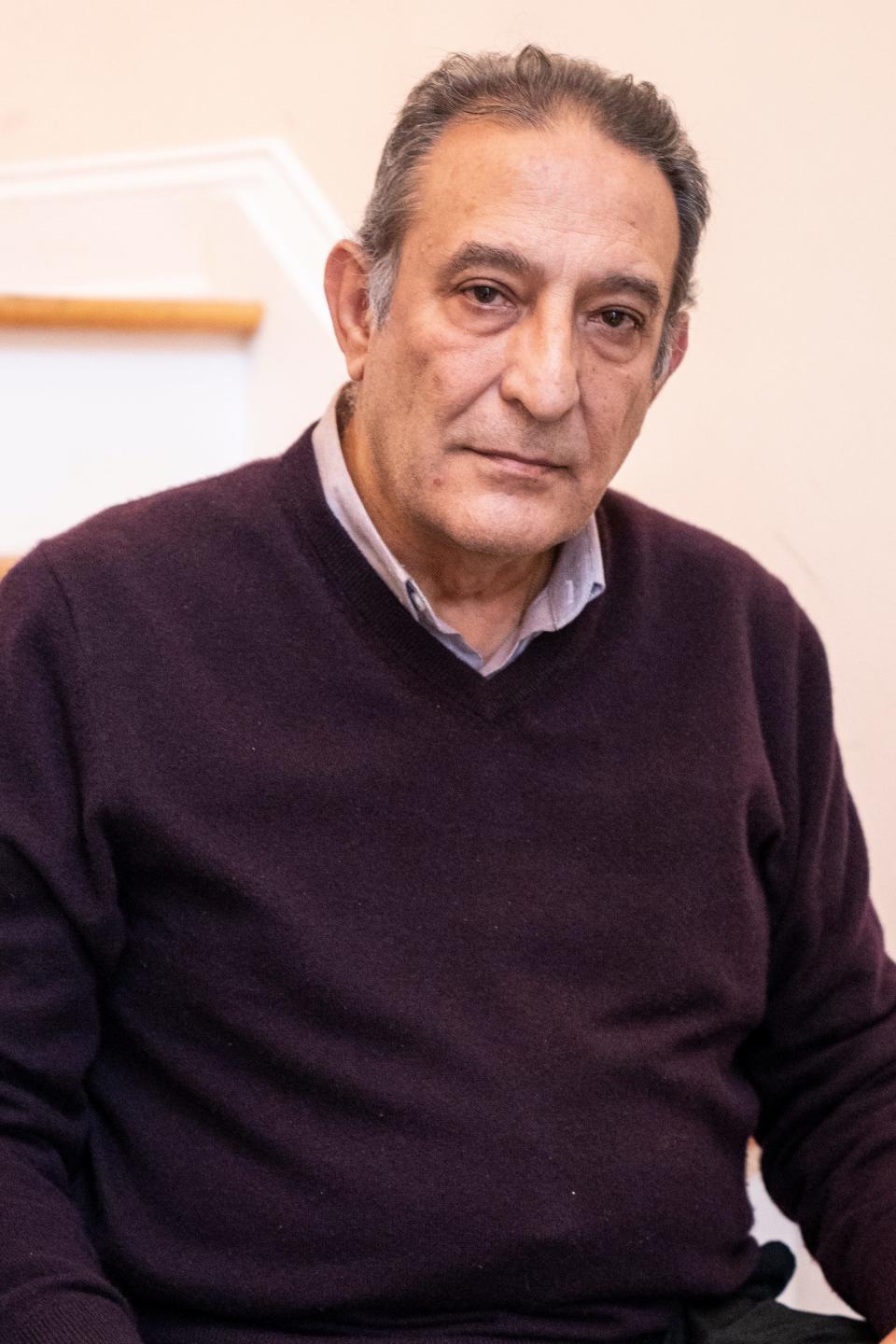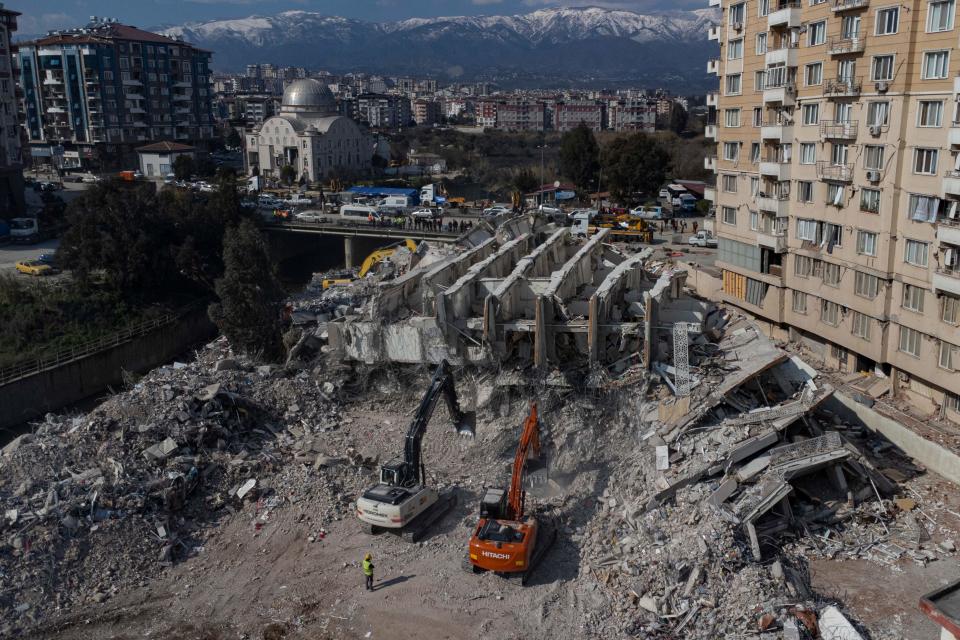Repeal sanctions? Syrian Americans divided on how to help after earthquake
Buildings reduced to rubble, survivors camped in the cold, mothers and fathers crying for lost children — these stories and images from Turkey and Syria after Monday’s earthquake have evoked sorrow and a desire to help.
But in the Syrian American community, there’s disagreement over how.
Sanctions are at the heart of the matter. Syria has been a target of US sanctions since 1979, but they became more restrictive in 2011 after President Bashar Assad’s government used violence against pro-democracy protesters demanding change. The sanctions prohibit financial support to the government, among other restrictions.
Some Syrian Americans call for repealing sanctions, arguing they hurt average citizens and hamper delivery of humanitarian aid. Others say sanctions ensure that Assad, accused of years of brutality against his people, does not exploit foreign funding for political or military gain.
Navigating a political minefield, the U.S. took a moderate step on Thursday to help the flow of aid. The Treasury Department issued a license, available for six months, allowing transactions related to earthquake relief.
Some Syrian Americans would like the U.S to do more.
“Sanctions don’t affect anybody in the government, only the people,” said Souheil Saba, a doctor from Wayne who traveled to Syria on Thursday to help in the relief effort. “There is nothing at all. There are no spare parts for any equipment, not even medical equipment. We cannot get it from anywhere.”

Syrians face fuel and food shortages and sky-high prices and lack materials to rebuild war-damaged homes and businesses. The earthquake underscored the need to repeal sanctions, which prohibit almost all trade and financial ties between the U.S. and Syria, Saba said.
More:'Whatever they need': Wayne doctor heads to Syria to help earthquake victims
Others say sanctions are an instrument for fighting repression under the Assad regime. They argue that Assad cannot be trusted to deliver services or aid to people in areas he has fiercely targeted and bombed during years of war, especially in the hard-hit northwestern region partly controlled by opposition forces.
He has a history of manipulating aid, withholding it to areas outside his control and channeling it to allies, experts say.
“If we had one percent of trust in the regime, we’d say OK,” said Fehmi Khairullah, a Hawthorne resident and a physician who fled persecution in Syria in 1992. “The regime killed [hundreds of thousands of] people in 10 years, you think he’d care about 3,000 or 4,000 people who lost their homes and take this humanitarian aid and distribute it in the north?”
The debate over sanctions underscores longstanding divisions within the Syrian American community, who have been fractured since the outset of war on how to deal with the Assad regime — whether he should be ousted, isolated or supported.
More:Here is how you can help earthquake victims in Turkey, Syria
Even major organizations that often agree on policy issues don’t see eye to eye over sanctions on Syria. On Monday, the American-Arab Anti-Discrimination Committee called for the immediate lifting of sanctions.
“The reality is more aid and relief is needed, and time is of the essence. Lifting of the sanctions will open the doors for additional and supplemental aid that will provide immediate relief to those in need,” Abed Ayoub, the national executive director, said in a statement.
Then, on Thursday, the chief executive of Emgage, a Muslim voter and advocacy organization, argued in a Washington Post opinion piece against repealing sanctions.
“The motivation behind these sanctions, especially those post-2011, is straightforward: to limit Assad’s ability to finance his military and militias who have been implicated in some of the worst atrocities of this century,” wrote Wa’el Alzayat.
Both Ayoub and Alzayat are Syrian American.
For Syrians hit by the earthquake, the need for aid is dire. The earthquake has killed more than 28,000 people in Turkey and Syria and toppled thousands of buildings. Survivors face injuries, homelessness in frigid temperatures, and lack of food and fuel.

Ninety percent of Syrians were living in poverty before the earthquake, according to the United Nations, which cites conflict, corruption, mismanagement, regional financial crises, sanctions and the COVID-19 pandemic as reasons.
A single passage into Syria was hampered by broken roads and the UN finally delivered help to the devastated area on Thursday, while rescue crews dug with their bare hands to try to save people trapped under the rubble.
More:In NJ, wait is agonizing for news of loved ones trapped after Turkey earthquake
Aid groups say sanctions have made it hard to operate in Syria, especially due to banking restrictions. The U.S. issues exemptions for humanitarian aid, but foreign banks are often reluctant to process payments and will restrict, delay and deny transactions, advocates say.
The new license, announced late Thursday, is intended to make it easier for organizations to do relief work. It’s unlikely that the U.S. will roll back sanctions on a greater scale for Syria.
“It would be quite ironic, if not even counterproductive, for us to reach out to a government that has brutalized its people over the course of a dozen years now," U.S. State Department spokesman Ned Price said Monday.
Many Syrian Americans are cautious about donations, because of the U.S. government's monitoring of charitable giving in Arab and Muslim communities since 9/11.
Saba, the CEO of a hospital in Homs, Syria, said it has been hard to get medical equipment. Medicine is exempt from sanctions, but companies are still reluctant to do business there amid rules from the Department of Treasury’s Office of Foreign Asset Control (OFAC).
"The main issue is that the sanctions are affecting the people, affecting the children," he said. "We don't have medicine. We don't have anything."
This article originally appeared on NorthJersey.com: Syria earthquake: Possible lifting of sanctions divides Americans

